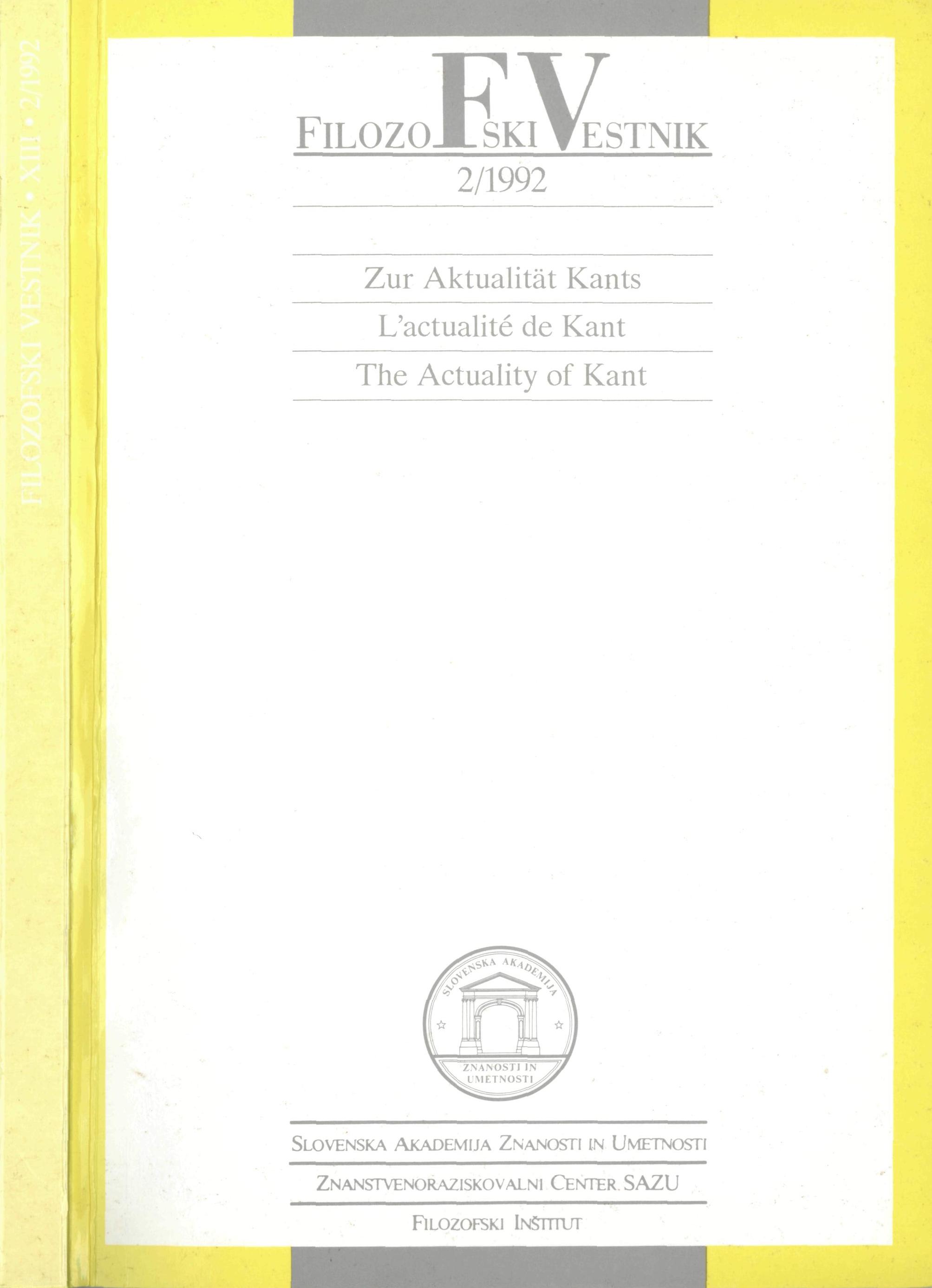Hobbes in teorija družbene pogodbe kot kontekst za Kantovo politično filozofijo
Povzetek
Tekst očrta zgodovino teorij »družbene pogodbe« v politični filozofiji, ki se začne s Hobbesom in izteče s Kantom, da bi tako opredelil kontekst, v katerega je potrebno vmestiti Kantovo politično filozofijo, če naj razumemo njene polemične detajle in ocenimo njene močne, pa tudi Šibke plati. Osredotoči se na klasično obliko teorije »družbene pogodbe«, kot jo je razvil Thomas Hobbes, pa tudi na teorije Locka, Spinoze in Rousseau ja, ki gradijo na njenih temeljih. Pri tem se tekst opira predvsem na dognanja novejših interpretacij omenjenih avtorjev, na koncu pa avtor nakaže, da je Kantova teorija »družbene pogodbe« precej bliže Hobbesovi, kot bi bil Kant nemara pripravljen priznati.Prenosi
Podatki o prenosih še niso na voljo.
Prenosi
Objavljeno
2016-01-21
Kako citirati
Korošec, G. (2016). Hobbes in teorija družbene pogodbe kot kontekst za Kantovo politično filozofijo. Filozofski Vestnik, 13(2). Pridobljeno od https://ojs.zrc-sazu.si/filozofski-vestnik/article/view/3832
Številka
Rubrike
Articles
Licenca
Avtorji jamčijo, da je delo njihova avtorska stvaritev, da v njem niso kršene avtorske pravice tretjih oseb ali kake druge pravice. V primeru zahtevkov tretjih oseb se avtorji zavezujejo, da bodo varovali interese založnika ter da bodo povrnili morebitno škodo.
Podrobneje v rubriki: Prispevki





